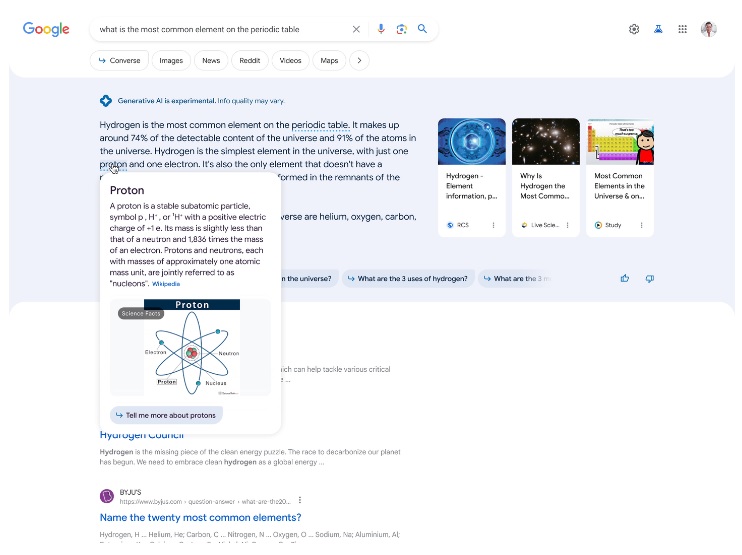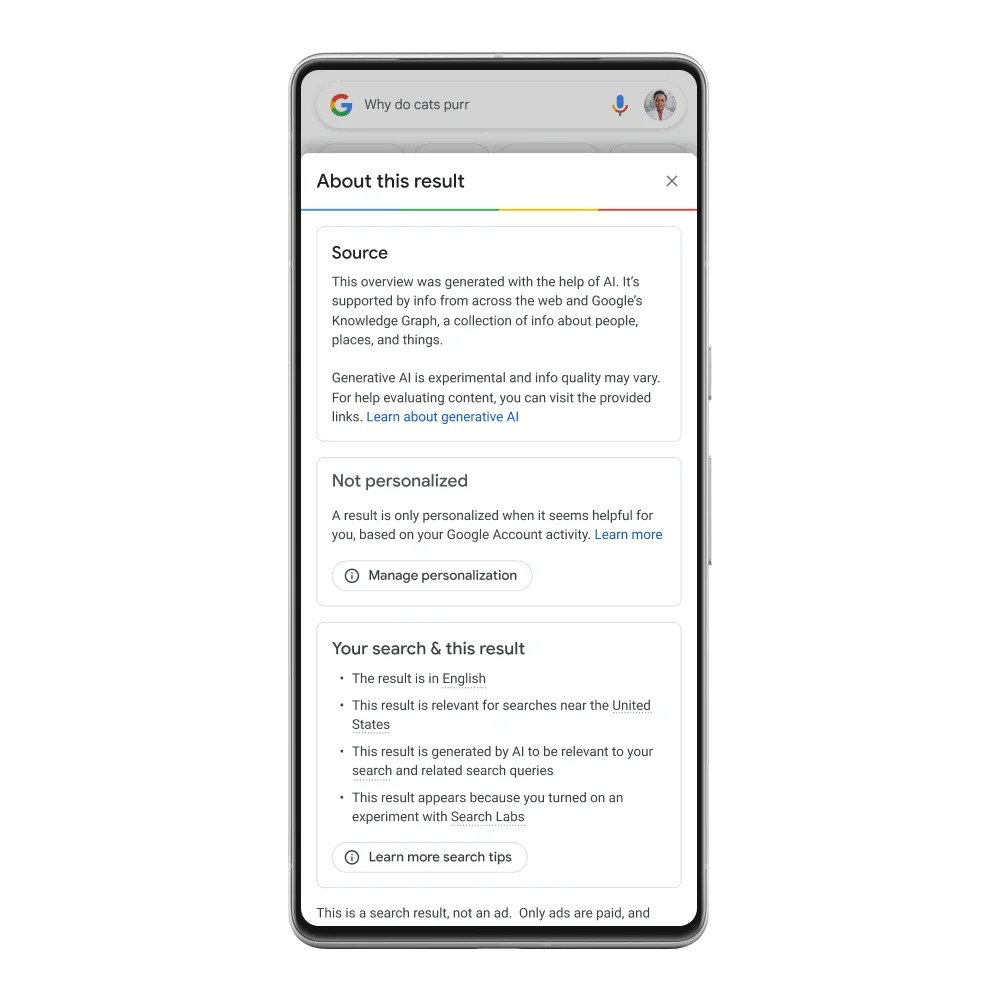Google's generative AI-powered Search experiment is now available for teens
Google's generative AI-based search feature has expanded to adolescents.

Get the latest news from Android Central, your trusted companion in the world of Android
You are now subscribed
Your newsletter sign-up was successful
What you need to know
- Google announced plans to extend its Search Generative Experience (SGE) to teenagers aged 13 to 17 years old in the US.
- As SGE rolls out to a younger generation, the tech giant emphasizes the importance of striking “the right balance” between opportunities and safety.
- The company also integrates a new "About this result" feature into its SGE, which gives searchers a deeper understanding of how Google’s AI generated the search engine response pages.
Google is continuing to tweak its generative AI-based search feature — dubbed Search Generative Experience or SGE, for short — and the company is expanding the AI tool to American adolescents.
In a company blog post, the tech giant announced plans to expand access to the Search Generative Experience, including SGE while browsing, in Search Labs to teenagers (13 to 17-year-olds) in the US “so they too can benefit from the helpful capabilities generative AI has to offer.”
This move follows Google’s successful launch of Search Labs earlier this year and the positive feedback the company gained from young adults aged 18 to 24 years old.
The tech giant explains that this younger demographic finds SGE particularly valuable, allowing them to interact with the search engine more naturally and ask follow-up questions as needed. So, it makes sense that Google wants to extend those capabilities to teenagers.
“Generative AI can help younger people ask questions they couldn’t typically get answered by a search engine and pose follow-up questions to help them dig deeper,” Google said in the announcement.
As SGE rolls out to a younger generation, the tech giant emphasizes the importance of striking “the right balance” between creating opportunities and prioritizing safety concerns. To do this, the company researched and consulted experts in teen development and implemented additional safeguards. This included stronger filters to prevent inappropriate content related to illegal substances, bullying, and other issues.
Google also published an AI Literacy Guide to educate teens and parents about how the emerging technology works.
Get the latest news from Android Central, your trusted companion in the world of Android
The company notes that “as we gather even more feedback, we will continue to improve how our systems respond, working with experts along the way to better protect teens.”

Aside from extending SGE to teens, Google also announced a new feature to help users validate the information they find online. The “About this result” feature — now integrated into SGE — gives searchers a deeper understanding of how Google’s AI generated the search engine response pages. The feature highlights web pages and content that back up the information found in SGE’s AI-powered summaries.
In terms of future updates, the company notes that it’s “working on solutions to use large language models to critique their own first draft responses on sensitive topics, and then rewrite them based on quality and safety principles.”
